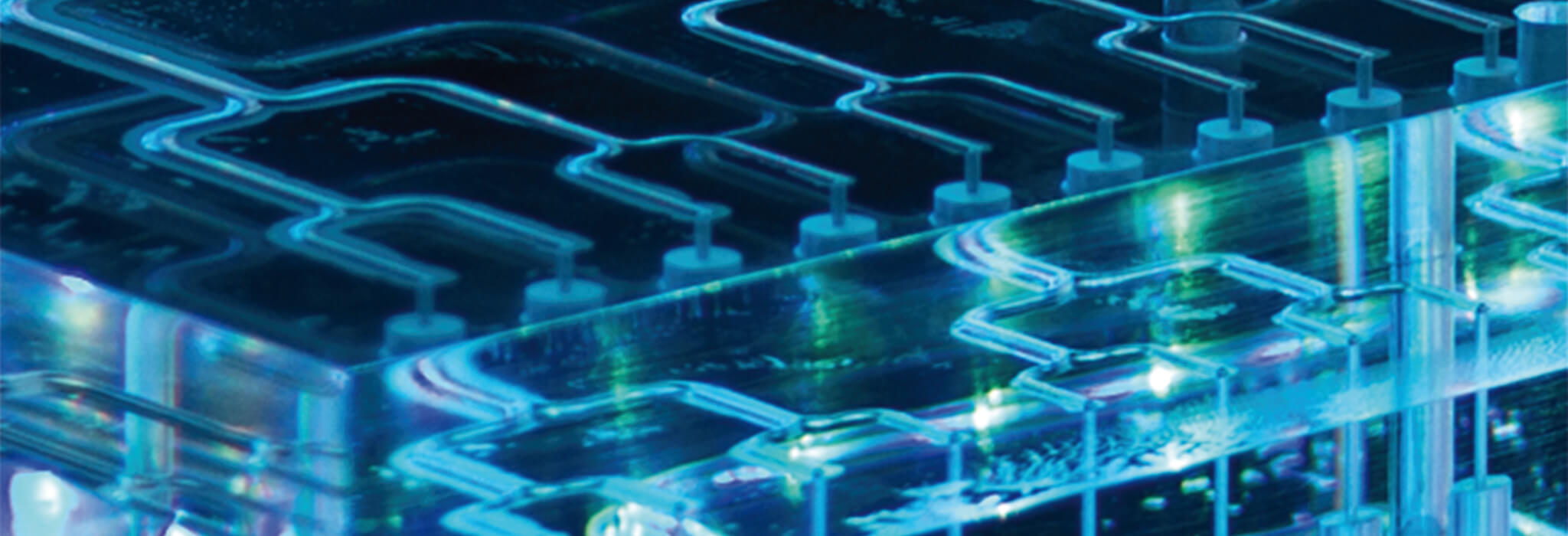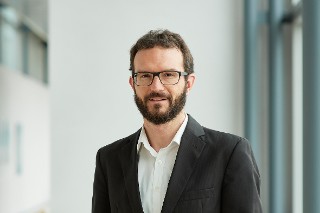Jahr
Year | Titel/Autor:in
Title/Author | Publikationstyp
Publication Type |
|---|
| 2024 |
Heizkosten und Treibhausgasemissionen in Bestandswohngebäuden
Meyer, Robert; Fuchs, Nicolas; Thomsen, Jessica; Herkel, Sebastian; Kost, Christoph |
Studie
Study
|
| 2024 |
Analysis of the Performance and Operation of a Photovoltaic-Battery Heat Pump System Based on Field Measurement Data
Baraskar, Shubham Vijay; Günther, Danny; Wapler, Jeannette; Lämmle, Manuel |
Zeitschriftenaufsatz
Journal Article
|
| 2024 |
When Polymorphism in Metal-Organic Frameworks Enables Water Sorption Profile Tunability for Enhancing Heat Allocation and Water Harvesting Performance
Matemb Ma Ntep, Tobie J.; Wahiduzzaman, Mohammad; Laurenz, Eric; Cornu, Ieuan; Mouchaham, Georges; Dovgaliuk, Iurii; Nandi, Shyamapada; Knop, Klaus; Jansen, Christian; Nouar, Farid; Florian, Pierre; Füldner, Gerrit; Maurin, Guillaume; Janiak, Christoph; Serre, Christian |
Zeitschriftenaufsatz
Journal Article
|
| 2023 |
Evaluation of Charging Systems for Heat Storage with Coupled Heat Pump
Gamisch, Sebastian |
Vortrag
Presentation
|
| 2023 |
Adsorption Dynamics and Hydrothermal Stability of MOFs Aluminium Fumarate, MIL-160 (Al), and CAU-10-H, and Zeotype TiAPSO for Heat Transformation Applications
Velte-Schäfer, Andreas; Laurenz, Eric; Rustam, Lina; Hügenell, Philipp; Henninger, Matthias; Seiler, Jan; Füldner, Gerrit |
Zeitschriftenaufsatz
Journal Article
|
| 2023 |
Heat to cold: Relevance and application of thermally driven cooling for the transformation of the energy system
Füldner, Gerrit; Volmer, Rahel; Da Silva Moreira, Adrian; Schnabel, Lena |
Konferenzbeitrag
Conference Paper
|
| 2023 |
Wärmepumpen für bestehende Mehrfamilienhäuser marktreif machen: Messungen in realen Gebäuden zeigen gute Performance
Metz, Jakob; Bongs, Constanze; Günther, Danny; Wapler, Jeannette; Lämmle, Manuel |
Zeitschriftenaufsatz
Journal Article
|
| 2023 |
Performance and safety analysis of charge reduced brine to water heat pumps using R290
Methler, Timo; Fugmann, Hannes; Dankwerth, Clemens; Sonner, Christian; Morawietz, Katharina; Schnabel, Lena |
Konferenzbeitrag
Conference Paper
|
| 2023 |
Untersuchung von PVT-Wärmepumpen-Systemen mit Quellspeicher
Bavia Bampi, Bruno; Knapp, Thomas; Pröll, Markus; Nienborg, Björn |
Konferenzbeitrag
Conference Paper
|
| 2023 |
Comparison of different deep neural networks for system identification of thermal building behavior
Gölzhäuser, Simon; Frison, Lilli |
Zeitschriftenaufsatz
Journal Article
|
| 2023 |
Vergleich verschiedener Simulationswerkzeuge am Beispiel einer füllmengenreduzierten Propanwärmepumpe
Beckschulte, Moritz; Will, Torsten; Koura, Adel Mohamed Nabil Ibrahim; Dankwerth, Clemens; Methler, Timo; Morawietz, Katharina; Schnabel, Lena |
Zeitschriftenaufsatz
Journal Article
|
| 2023 |
Numerical Modelling and Evaluation of a Novel Sorption Module for Thermally Driven Heat Pumps and Chillers using Open-Source Simulation Library
Velte-Schäfer, Andreas; Zhang, Yannan; Nonnen, Thomas; Wittstadt, Ursula; Frazzica, Andrea; Füldner, Gerrit; Palomba, Valeria |
Zeitschriftenaufsatz
Journal Article
|
| 2023 |
Basic Adsorption Heat Exchanger Theory for Performance Prediction of Adsorption Heat Pumps
Velte-Schäfer, Andreas; Laurenz, Eric; Füldner, Gerrit |
Zeitschriftenaufsatz
Journal Article
|
| 2023 |
Refrigerant charge distribution in brine-to-water heat pump using R290 as refrigerant
Sánchez-Moreno-Giner, Luis; Methler, Timo; Barceló-Ruescas, Francisco; Gonzalvez-Maciá, José |
Zeitschriftenaufsatz
Journal Article
|
| 2023 |
Vergleich verschiedener Simulationswerkzeuge am Beispiel einer füllmengenreduzierten Wärmepumpe mit dem Kältemittel Propan
Beckschulte, Moritz; Will, Torsten; Koura, Adel Mohamed Nabil Ibrahim; Dankwerth, Clemens; Methler, Timo; Morawietz, Katharina; Schnabel, Lena |
Konferenzbeitrag
Conference Paper
|
| 2023 |
Heat Pump Systems in Existing Multifamily Buildings: A Meta-Analysis of Field Measurement Data Focusing on the Relationship of Temperature and Performance of Heat Pump Systems
Lämmle, Manuel; Kropp, Michael; Metz, Jakob; Wapler, Jeannette; Oltersdorf, Thore; Günther, Danny; Herkel, Sebastian; Bongs, Constanze |
Zeitschriftenaufsatz
Journal Article
|
| 2023 |
Grüne Wärmetransformation - Anforderungen und Technologien
Herkel, Sebastian |
Vortrag
Presentation
|
| 2023 |
Niedrigere Trinkwarmwasser-Systemtemperaturen bringen Wärmepumpen in die Breite
Kropp, Michael; Lämmle, Manuel; Schauer, Christian; Reiter, Fabian |
Zeitschriftenaufsatz
Journal Article
|
| 2023 |
Using Effective Heat and Mass Transfer Resistances and Characteristic Temperature Differences to Predict Performance of Adsorptive Heat Transformation Devices - a Simple and Robust Approach
Velte-Schäfer, Andreas; Laurenz, Eric; Weilenmann Weisser, Tobias; Füldner, Gerrit |
Konferenzbeitrag
Conference Paper
|
| 2023 |
Zyklische Wasserverdampfer für Adsorptionskälteanlagen - Herausforderungen eines vereisenden Betriebs
Volmer, Rahel; Nonnen, Thomas; Da Silva Moreira, Adrian; Füldner, Gerrit; Schnabel, Lena; Herrmann, Ralph |
Konferenzbeitrag
Conference Paper
|
| 2023 |
Analyse der Füllmengenberechnung von Plattenwärmeübertragern
Will, Torsten; Schnabel, Lena; Köhler, Jürgen |
Konferenzbeitrag
Conference Paper
|
| 2023 |
Detailed Thermal Evaluation of Brazed Plate Heat Exchanger Using Infrared Thermography
Will, Torsten; Schnabel, Lena; Köhler, Jürgen |
Zeitschriftenaufsatz
Journal Article
|
| 2023 |
Schallmessung an Luftwärmepumpen im Feld - fast finale Ergebnisse
Nienborg, Björn; Sangsinsorn, Siripak; Günther, Danny |
Vortrag
Presentation
|
| 2023 |
Kernelemente einer erfolgreichen Wärmewende
Henning, Hans-Martin |
Vortrag
Presentation
|
| 2023 |
Mehrquellen-Wärmepumpensystem im Feldtest: Betriebsanalyse eines Mehrquellen-Wärmepumpensystems mit den Quellen Erdreich und Außenluft im Mehrfamilienhausbestand
Metz, Jakob; Günther, Danny; Bongs, Constanze |
Konferenzbeitrag
Conference Paper
|
| 2023 |
Wärmewende im Wohnungsbestand zügig - sozial - wirtschaftlich - umsetzbar? Effizienz und Energie: Wege und Irrwege
Herkel, Sebastian |
Vortrag
Presentation
|
| 2023 |
Comparison of PVT - heat pump systems with reference systems for the energy supply of a single-family house
Chhugani, Bharat; Pärisch, Peter; Helmling, Sebastian; Giovannetti, Federico |
Zeitschriftenaufsatz
Journal Article
|
| 2023 |
Analyse des Gebäudesektors im Zweijahresgutachten des Expertenrat für Klimafragen (ERK)
Henning, Hans-Martin |
Vortrag
Presentation
|
| 2023 |
Optimization of energetic refurbishment roadmaps for multi-family buildings utilizing heat pumps
Vollmer, Raphael; Lämmle, Manuel; Hess, Stefan; Henning, Hans-Martin |
Zeitschriftenaufsatz
Journal Article
|
| 2023 |
Producing the goods
Morgenstern, Alexander; Pfanner, Norbert |
Zeitschriftenaufsatz
Journal Article
|
| 2023 |
Verschmutzungsdetektion an Trockenrückkühlern. Laboruntersuchungen und Anwendung auf Bestandsanlagen
Rohrer, Sebastian; Kao, Tzu-Heng; Morgenstern, Alexander; Nienborg, Björn |
Konferenzbeitrag
Conference Paper
|
| 2023 |
Benchmarking metal-organic framework coatings from Large-Temperature-Jump experiments: Learning from trade-offs in mean powers versus characteristic times
Henninger, Matthias; Gilges, Markus; Nissen, Tim; Cui, Frédéric S.; Rustam, Lina; Ernst, Sebastian-Johannes; Velte-Schäfer, Andreas; Bardow, André; Seiler, Jan |
Zeitschriftenaufsatz
Journal Article
|
| 2023 |
Solare Kühlung und Trocknung von Fischen in Kenia
Fischer, Matthias; Esper, Albert; Pfanner, Norbert; Morgenstern, Alexander |
Zeitschriftenaufsatz
Journal Article
|
| 2023 |
Kondensatordesign in einem thermischen Speicher für eine R290 Wärmepumpe
Diewald, Kevin; Beckschulte, Moritz; Fugmann, Hannes; Schnabel, Lena; Thomas, Christiane |
Vortrag
Presentation
|
| 2023 |
Sicherer Betrieb einer 12-kW-Propan-Wärmepumpe
Oltersdorf, Thore; Joos, Lukas; Sonner, Christian; Belz, Christoph; Morawietz, Katharina; Methler, Timo; Fugmann, Hannes; Schnabel, Lena |
Vortrag
Presentation
|
| 2023 |
Adsorptive Wärmetransformation in Rechenzentren - Analyse der Möglichkeiten und Grenzen
Velte-Schäfer, Andreas; Stahlhut, Maximilian; Henninger, Stefan; Füldner, Gerrit; Urbaneck, Thorsten |
Vortrag
Presentation
|
| 2023 |
Hochtemperatur Wärmepumpen in Deutschland - Marktübersicht, Umsetzungsbeispiele, Forschungsprojekte
Henninger, Stefan; Teles de Oliveira, Hannah; Benkert, Sebastian; Schöttl, Peter |
Konferenzbeitrag
Conference Paper
|
| 2023 |
Fit für 2045: Zielparameter für Nichtwohngebäude im Bestand
Kluge, Christian; Lenging, Saskia; Becker, Juliane; Ulmer, Alina; Hansjürgens, Johanna Anna; Barckhausen, Anton; Meyer, Robert; Nienborg, Björn; Engelmann, Peter |
Studie
Study
|
| 2022 |
Experimental Analysis of Various Refrigerant Circuit Component Combinations for Low Charge Propane Heat Pumps
Methler, Timo; Dankwerth, Clemens; Joos, Lukas; Fugmann, Hannes; Morawietz, Katharina; Schnabel, Lena |
Konferenzbeitrag
Conference Paper
|
| 2022 |
TABSOLARⓇ - a novel approach of thermo-active (solar) building systems based on ultra-high performance concrete (UHPC)
Hermann, Michael; Hildebrandt, Christina; Mattmüller, Jan; Felic, Artur; Sablotny, Tino; Tesari, Iwiza; Bethge, Klaus; Böke, Jens |
Zeitschriftenaufsatz
Journal Article
|
| 2022 |
Performance of air and ground source heat pumps retrofitted to radiator heating systems and measures to reduce space heating temperatures in existing buildings
Lämmle, Manuel; Bongs, Constanze; Wapler, Jeannette; Günther, Danny; Hess, Stefan; Kropp, Michael; Herkel, Sebastian |
Zeitschriftenaufsatz
Journal Article
|
| 2022 |
Experimental Performance Analysis of Adsorption Modules with Sintered Aluminium Fiber Heat Exchangers and SAPO‐34‐Water Working Pair for Gas‐Driven Heat Pumps
Velte, Andreas; Joos, Lukas; Füldner, Gerrit |
Zeitschriftenaufsatz
Journal Article
|
| 2022 |
Passgenaue Softwarelösungen für Handwerksbetriebe
Meyer, Robert |
Zeitschriftenaufsatz
Journal Article
|
| 2022 |
Planning, design and construction of a multi-purpose high-temperature heat pump test bench for hydrocarbons
Teles de Oliveira, Hannah; Braungardt, Simon; Fugmann, Hannes; Schnabel, Lena; Henninger, Stefan |
Konferenzbeitrag
Conference Paper
|
| 2022 |
Investigation of additively manufactured structurally integrated heat pipes for CubeSats
Kappe, Konstantin; Bihler, Michael; Morawietz, Katharina; Pfaff, Aron; Bierdel, Marius; Huber, Jakob; Paul, Theresa; Hoschke, Klaus |
Konferenzbeitrag
Conference Paper
|
| 2022 |
Energietechnologien der Zukunft - mit Technologiesouveränität zur Energiesouveränität
Henning, Hans-Martin |
Vortrag
Presentation
|
| 2022 |
Wärmepumpen sind oft günstiger als Gaskessel
Meyer, Robert; Senkpiel, Charlotte |
Zeitschriftenaufsatz
Journal Article
|
| 2022 |
Performance of Heat Pump Systems with PVT Collectors with optimized Finned Heat Exchangers integrated as single Heat Source
Lämmle, Manuel; Munz, Gunther |
Konferenzbeitrag
Conference Paper
|
| 2022 |
Refrigerant charge estimation methods for brazed plate heat exchangers
Will, Torsten; Fugmann, Hannes; Schnabel, Lena; Köhler, Jürgen |
Konferenzbeitrag
Conference Paper
|
| 2022 |
TABSOLAR III - Wirtschaftliche Fertigungs- und Systemkonzepte für die nachhaltige Wärmeversorgung von Gebäuden mit durchströmbaren Bauelementen aus Ultrahochleistungsbeton
Hermann, Michael; Lauro, Paolo Di; Seifarth, Hannes; Sablotny, Tino; Zajutro, Maren; Mogalle, Ralf; Pille, Klaus; Neumann, Moritz |
Konferenzbeitrag
Conference Paper
|
| 2022 |
Auf dem Weg zum Energiesystem Deutschland 2045 - Technologien, Systemfragen, Transformationspfade
Henning, Hans-Martin |
Vortrag
Presentation
|
| 2022 |
Operational analysis of 5 PVT heat pump systems based on field measurement data
Helmling, Sebastian; Langner, Robert; Geimer, Konstantin |
Konferenzbeitrag
Conference Paper
|
| 2022 |
Experimental Results of a Gas Fired Adsorption Heat Pump and Simulative Prediction of Annual Performance in a Multi-Family House
Velte, Andreas; Laurenz, Eric; Leisner, Simon; Weber, Josef; Wittstadt, Ursula; Füldner, Gerrit |
Zeitschriftenaufsatz
Journal Article
|
| 2022 |
Extended Frequency Response Analysis for Loading and Temperature Dependent Heat and Mass Transfer Evaluation in Adsorbent Coatings
Laurenz, Eric; Füldner, Gerrit; Velte-Schäfer, Andreas; Schnabel, Lena |
Konferenzbeitrag
Conference Paper
|
| 2022 |
Die Energiewende im Gebäudesektor - aktuelle Entwicklungen aus der Forschung
Henning, Hans-Martin |
Vortrag
Presentation
|
| 2022 |
Simulation and experimental analysis of a low-charge ground-source heat pump using propane as refrigerant
Sánchez-Moreno-Giner, Luis; Methler, Timo; Barceló-Ruescas, Francisco; Gonzálvez-Maciá, José |
Konferenzbeitrag
Conference Paper
|
| 2022 |
Auf dem Weg in eine klimaneutrale Energieversorgung - Transformationspfade für die deutsche Energiewende
Henning, Hans-Martin |
Vortrag
Presentation
|
| 2022 |
Der Gebäudesektor im Kontext der Energie- und Klimapolitik
Henning, Hans-Martin |
Vortrag
Presentation
|
| 2022 |
Development of a gas driven zeolite-water adsorption heat pump for multi-family homes
Füldner, Gerrit; Velte-Schäfer, Andreas; Wittstadt, Ursula |
Konferenzbeitrag
Conference Paper
|
| 2022 |
Valuation of Novel Waste Heat Sources and a Path Towards Adoption
Lämmle, Manuel; Allen, Amy; Henze, Gregor; Pless, Shanti |
Konferenzbeitrag
Conference Paper
|
| 2022 |
Detailed Brazed Plate Heat Exchanger Evaluation using Infrared Thermography
Will, Torsten; Schnabel, Lena; Köhler, Jürgen |
Konferenzbeitrag
Conference Paper
|
| 2022 |
Safe Use of Flammable Refrigerants in Cooling/Heating Cycles
Sonner, Christian; Schnabel, Lena; Fugmann, Hannes |
Konferenzbeitrag
Conference Paper
|
| 2022 |
Zweijahresgutachten 2022
Henning, Hans-Martin; Knopf, Brigitte; Bettzüge, Marc O.; Heimer, Thomas; Schlomann, Barbara |
Bericht
Report
|
| 2022 |
Entwicklung und Rolle von Propanwärmepumpen
Schnabel, Lena; Oltersdorf, Thore |
Vortrag
Presentation
|
| 2022 |
Stacked adsorption module with aluminium composite foil: Simulation and experimental evaluation of a novel concept
Laurenz, Eric; Linke, Moritz; Velte-Schäfer, Andreas; Volmer, Rahel; Weise, Jörg; Füldner, Gerrit |
Konferenzbeitrag
Conference Paper
|
| 2022 |
Betriebsanalyse von 5 PVT-Wärmepumpensystemen auf Basis von Feldmessdaten über 12 Monate im Rahmen des Projektes integraTE
Helmling, Sebastian; Geimer, Konstantin; Langner, Robert |
Konferenzbeitrag
Conference Paper
|
| 2022 |
Simulationen und Messungen im Kontext von TABSOLAR®-Systemen
Mattmüller, Jan; Sporrer, Heike |
Vortrag
Presentation
|
| 2022 |
Wärmepumpen - Aktuelle Entwicklungen und Lösungen für den Gebäudebestand
Bongs, Constanze; Krause, Michael; Kracht, Niklas |
Vortrag
Presentation
|
| 2022 |
Wärmepumpen in Mehrfamiliengebäuden: Umsetzungsbeispiele
Dinkel, Arnulf |
Vortrag
Presentation
|
| 2022 |
Propan-Kältekreise mit deutlich reduzierten Füllmengen
Schnabel, Lena |
Vortrag
Presentation
|
| 2022 |
Einsatz von Wasserstofftechnologien in Gebäuden
Herkel, Sebastian; Meyer, Robert; Gerhardt, Norman |
Aufsatz in Buch
Book Article
|
| 2022 |
Bottom-Up Studie zu Pfadoptionen einer effizienten und sozialverträglichen Dekarbonisierung des Wärmesektors. Endbericht
Thomsen, Jessica; Fuchs, Nicolas; Meyer, Robert; Wanapinit, Natapon; Ulffers, Jan; Bavia Bampi, Bruno; Lohmeier, Daniel Jan; Prade, Erik; Gorbach, Gregor; Sanina, Natalia; Engelmann, Peter; Herkel, Sebastian; Kost, Christoph; Braun, Martin; Lenz, Matthias |
Studie
Study
|
| 2021 |
Heizungstechnologien im Gebäude: Ein Beitrag zur Bewertung der Wirtschaftlichkeit und Klimawirksamkeit
Meyer, Robert; Senkpiel, Charlotte; Heilig, Judith; Berneiser, Jessica; Fluri, Verena; Gorbach, Gregor; Herkel, Sebastian; Kost, Christoph |
Studie
Study
|
| 2021 |
Dauerfeldmessung der Lärmbelastung durch Luftwärmepumpen
Nienborg, Björn; Oltersdorf, Thore; Günther, Danny |
Konferenzbeitrag
Conference Paper
|
| 2021 |
Unsteady Evaporation of Water from Wire Mesh Structures at Sub-Atmospheric Pressures
Volmer, Rahel; Schnabel, Lena |
Konferenzbeitrag
Conference Paper
|
| 2021 |
Experimentelle Versuche zu Ver- und Enteisung am Luft/Sole-Wärmeübertrager
Metz, J.; Helling, T.; Günther, Danny; Bongs, Constanze |
Konferenzbeitrag
Conference Paper
|
| 2021 |
Systemische Herausforderung der Wärmewende. Abschlussbericht
Engelmann, Peter; Köhler, Benjamin; Meyer, Robert; Dengler, Jörg; Herkel, Sebastian; Kießling, Lea; Quast, Anneke; Berneiser, Jessica; Bär, Christian; Sterchele, Philip; Heilig, Judith; Bürger, Veit; Braungardt, Sibylle; Hesse, Tilman; Sandrock, Matthias; Maaß, Christian; Strodel, Nikolai; Steinbrenner, Joscha |
Bericht
Report
|
| 2021 |
Klimafreundliche Wärmepumpen für den sanierten Gebäudebestand. Ergebnisse des Projektes NK4HTWP
Oltersdorf, Thore; Dankwerth, Clemens; Will, Torsten; Gumbel, Urs; Thoma, Christoph; Malenkovic, Ivan; Schröder, Nikolas; Penner, Christian; Möller, Judith; Brugmann, Johannes |
Vortrag
Presentation
|
| 2021 |
Die Wärmewende im Gebäudesektor - Herausforderungen und Handlungsoptionen
Köhler, B.; Bürger, D.V.; Meyer, Robert; Engelmann, Peter; Sandrock, M. |
Zeitschriftenaufsatz
Journal Article
|
| 2021 |
Reduction of Rotation Phase Supercooling in N-Docosanol Nano Phase Change Slurries
Kick, Moritz; Gschwander, Stefan |
Konferenzbeitrag
Conference Paper
|
| 2021 |
Zeolite NaY-Copper Composites Produced by Sintering Processes for Adsorption Heat Transformation
Velte, Andreas; Weise, Jörg; Laurenz, Eric; Baumeister, Joachim; Füldner, Gerrit |
Zeitschriftenaufsatz
Journal Article
|
| 2021 |
Characterizing Kinetics of MOFs for adsorption cooling: IR LTJ experiments of Al-fumarate and CAU-10(Al)-H
Henninger, Matthias; Rustam, Lina; Ernst, Sebastian-Johannes; Velte-Schäfer, Andreas; Seiler, Jan; Bardow, André |
Vortrag
Presentation
|
| 2021 |
Vermessung einer Adsorptions-Gaswärmepumpe - Experimentelle Ergebnisse und simulative Bewertung des Einsatzes für die Beheizung von Mehrfamilien-Bestandsgebäuden
Velte-Schäfer, Andreas; Laurenz, Eric; Leisner, Simon; Weber, Josef; Wittstadt, Ursula; Füldner, Gerrit |
Konferenzbeitrag
Conference Paper
|
| 2021 |
Wärmepumpen im Gebäudebestand
Henning, Hans-Martin |
Vortrag
Presentation
|
| 2021 |
Evaluation of a Low Charge Heat Pump Circuit Using Propane
Dankwerth, Clemens; Methler, Timo; Oltersdorf, Thore; Schossig, Peter; Schnabel, Lena |
Vortrag
Presentation
|
| 2021 |
Auf dem Weg zu hochgradig erneuerbar versorgten Gebäuden und Quartieren
Henning, Hans-Martin |
Vortrag
Presentation
|
| 2021 |
MCHX: Vermessung und Simulation bei Vereisung
Schnabel, Lena; Braungardt, Simon; Hartleif, Thilo; Fugmann, Hannes |
Konferenzbeitrag
Conference Paper
|
| 2021 |
Vibroakustische und aeroakustische Untersuchungen an Wärmepumpen
Wagner, Sebastian; Rohlfing, Jens; Gindre, Thomas; Oltersdorf, Thore |
Konferenzbeitrag
Conference Paper
|
| 2021 |
Adsorber heat exchanger using Al-fumarate beads for heat-pump applications - a transport study
Farrusseng, D.; Daniel, C.; Hamill, C.; Casaban, J.; Didriksen, T.; Blom, R.; Velte, Andreas; Füldner, Gerrit; Gantenbein, Paul; Persdorf, P.; Daguenet-Frick, X.; Meunier, F. |
Zeitschriftenaufsatz
Journal Article
|
| 2021 |
Comparison of refrigerant charge requirements in an optimized fin and tube evaporator versus plate heat exchangers
Allymehr, Ehsan; Will, Torsten; Schnabel, Lena; Skaugen, Geir |
Konferenzbeitrag
Conference Paper
|
| 2021 |
Charakterisierung von Kältemittelverflüssigern und -verdampfern in Kälteanlagen und Wärmepumpen
Will, Torsten; Braungardt, Simon; Methler, Timo; Ambrosius, Jan; Paul, Theresa; Joos, Lukas; Schnabel, Lena; Köhler, Jürgen |
Konferenzbeitrag
Conference Paper
|
| 2021 |
Systemic Challenges of Germany's Heat Transition - a Measure and Policy Roadmap for a Climate Neutral Building Stock
Köhler, B.; Bürger, Veit; Meyer, Robert; Engelmann, Peter; Sterchele, Philip; Heilig, J.; Berneiser, Jessica; Sandrock, M.; Braungardt, Simon; Hesse, T. |
Konferenzbeitrag
Conference Paper
|
| 2021 |
Wärmepumpen in Bestandsgebäuden
Bongs, Constanze; Miara, Marek; Günther, Danny |
Zeitschriftenaufsatz
Journal Article
|
| 2021 |
Refrigerant maldistribution in brazed plate heat exchanger evaporators. Part B: Analysis of the influence of maldistribution on the evaporator performance
Navarro-Peris, E.; Alvarez-Piñeiro, L.; Schnabel, Lena; Corberan, Jose M. |
Zeitschriftenaufsatz
Journal Article
|
| 2021 |
Klimapolitik für die Wärmewende. Handlungsoptionen für die neue Regierung
Henning, Hans-Martin |
Vortrag
Presentation
|
| 2021 |
Refrigerant maldistribution in brazed plate heat exchanger evaporators. Part A: Testing campaign and experimental results
Navarro-Peris, E.; Alvarez-Piñeiro, L.; Albaladejo, P.; Schnabel, Lena; Corberan, Jose M. |
Zeitschriftenaufsatz
Journal Article
|
| 2021 |
Hydrothermal stress test - Investigation on zeolite 13X and Al-fumarate for their application in open heat storage application
Rustam, Lina; Ruh, Stephan; Hügenell, Philipp; Ernst, Sebastian-Johannes; Henninger, Stefan |
Konferenzbeitrag
Conference Paper
|
| 2021 |
Numerical Study of Hydrocarbon Charge Reduction Methods in HVAC Heat Exchangers
Allymehr, E.; Skaugen, G.; Will, Torsten; Pardiñas, A.A.; Eikevik, T.M.; Hafner, A.; Schnabel, Lena |
Zeitschriftenaufsatz
Journal Article
|
| 2021 |
Kompakte Propan-Kältekreise für Wärmepumpen-Entwicklungsfragen zwischen Kältemittelreduktion und Thermodynamik
Schnabel, Lena; Will, Torsten; Methler, Timo; Oltersdorf, Thore; Sánchez-Moreno, Luis |
Vortrag
Presentation
|
| 2020 |
Experimentally measured thermal masses of adsorption heat exchangers
Gluesenkamp, K.R.; Frazzica, A.; Velte, Andreas; Metcalf, S.; Yang, Z.; Rouhani, M.; Blackman, C.; Qu, M.; Laurenz, Eric; Rivero-Pacho, A.; Hinmers, S.; Critoph, R.; Bahrami, M.; Füldner, Gerrit; Hallin, I. |
Zeitschriftenaufsatz
Journal Article
|




